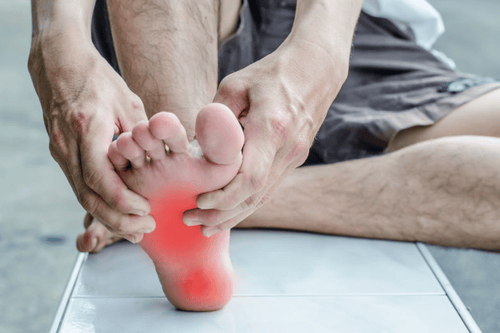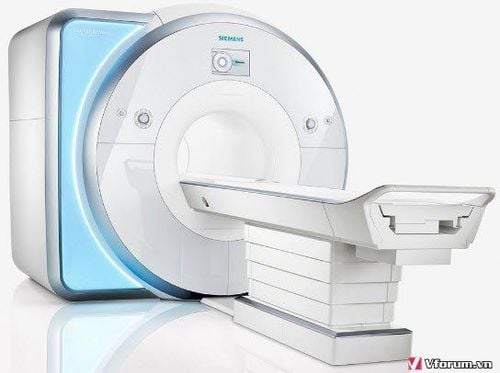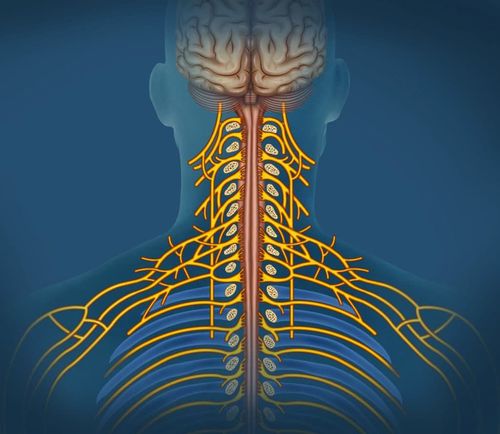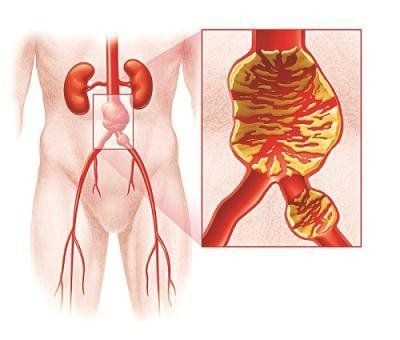This is an automatically translated article.
The article is professionally consulted by Master, Doctor Le Xuan Thiep - Radiologist - Department of Diagnostic Imaging - Vinmec Ha Long International Hospital.MRI of peripheral nerves is a modern technique, which is increasingly being widely applied in clinical practice. The ability to render images in a detailed, non-invasive, safe, non-radioactive manner are the outstanding strengths of peripheral nerve MRI.
1. What is magnetic resonance imaging (MRI) of peripheral nerves?
Peripheral nerve magnetic resonance imaging or peripheral nerve MRI is a modern imaging tool for more detailed and clearer images, specifically in the diagnosis and detection of nerve diseases. peripheral nerves. MRI of peripheral nerves is a technique with many outstanding advantages such asThis is a non-invasive technique with high safety. The patient underwent an MRI of the peripheral nerves without the same x-ray exposure as with computed tomography. The gadolinium-derived contrast agent in MRI has a lower rate of allergic and anaphylactic reactions than the iodinated contrast agent used in computed tomography. Nerve damage after trauma is quickly detected. Valuable correlates with the corresponding bioelectrical analyses. Indications for MRI of peripheral nerves account for a high proportion in the group of patients with back pain, leg pain or lesions suspected of being caused by peripheral nerves such as femoral nerve, equine plexus or dorsal and lumbar nerves. . With outstanding advantages, MRI of peripheral nerves is increasingly preferred and widely chosen. However, some disadvantages of this imaging technique also exist such as high cost, limited audience affordability, failure to classify the degree of nerve damage, and failure to assess long nerves in one slice.
Patients need to know the precautions before, during and after the MRI to ensure their own safety.

Bệnh nhân bị đau chân sẽ được chỉ định chụp MRI
2. Indications for peripheral nerve magnetic resonance imaging
Peripheral nerve damage is the main group of diseases in the indications for MRI of peripheral nerves. With the ability to detect structural abnormalities at a sophisticated level, peripheral nerve MRI has high specificity and sensitivity in the diagnosis and monitoring of disease.MRI of peripheral nerves is usually indicated in the following situations:
Trauma with suspected nerve damage Lumbar disease caused by lumbar plexus and Lower extremity disorders and /or upper extremities suspected of neuropathy. Tumor in muscle, blood vessels or surrounding lesions compressing nerves Tumor infiltrating nerves, neuroblastoma Detecting metastatic nerve tumor from other organs.
3. Contraindications to peripheral nerve magnetic resonance imaging
MRI of the peripheral nerves is evaluated as a safe technique with little harm to the radiographer. However, not all patients are indicated for peripheral nerve MRI.Contraindications to peripheral nerve resonance imaging include:
Patients with magnetic metal substitutes such as some pacemakers, artificial heart valves, cochlear implants creating, means of combining bones such as nails, screws, hemostatic clips are used in the treatment of cerebral aneurysms, ... The machine's magnetic field can cause many activities or interrupt the operation of the organs. This device causes many dangerous complications for the patient. Having a complete fragment or bullet in the body Metal or magnetic foreign body in the head, neck, eye socket, Patient has claustrophobia because the magnetic resonance imaging technique requires the patient to lie down sit under the machine compartment for a long time.

Chụp MRI dây thần kinh ngoại biên được đánh giá rất an toàn
4. What does the patient need to prepare before the scan?
To ensure safety and image quality, patients should remember and adhere to the following:No need to fast before taking pictures. Except for the case of drug-enhanced peripheral nerve MRI, the person taking the scan should abstain from food and drink for about 4 hours before the procedure. Cooperate with medical staff in reporting medical history to rule out contraindications. Do not bring jewelry such as earrings, necklaces, watches, phones and magnetic cards into the shooting room. Keep calm, don't worry too much.
5. Steps to perform a peripheral nerve MRI scan
Peripheral nerve MRI should be performed according to the correct procedure to ensure patient safety, as well as ensure the final image quality:Prepare the scanner and necessary tools including drugs and medical supplies. Exploit patient information to rule out contraindications to MRI. Thoroughly consult and explain to the patient and accompanying family members about the peripheral nerve MRI procedure. Instruct the patient to remove jewelry and personal belongings, change into uniform to enter the imaging room. Instruct the patient to follow the instructions of the radiologist. Place the patient on the imaging chair in the supine position. Select coils according to the area you want to examine the nerve. Examine the peripheral nerves in the thoracic and lumbar regions using different specialized coils. Put the area to be investigated into the engine compartment with the magnetic field. Set technical parameters, select pulse sequences depending on the doctor's prescription. The pulse sequences and the order of application vary from case to case. The total shooting time can be extended continuously for 1 hour. The patient goes out of the room and waits for the results. Vinmec International General Hospital with a system of modern facilities, medical equipment and a team of experts and doctors with many years of experience in neurological examination and treatment, patients can completely rest in peace. examination and treatment center at the Hospital.
Dr. Le Xuan Thiep has strengths in performing advanced and difficult magnetic resonance and computed tomography techniques such as: coronary computed tomography, cardiac function, cerebral magnetic resonance, perfusion brain and organs,..
If you notice any unusual health problems, you should visit and consult a specialist
Please dial HOTLINE for more information or register for an appointment HERE. Download MyVinmec app to make appointments faster and to manage your bookings easily.













